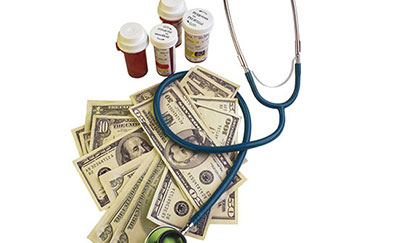New Jersey Sales and Use Tax Refunds in the Pharmaceutical, Utility and Cogeneration Industries
by Victor P. Treglia, CPA, NJ Sales Tax Audit & Refund Specialists –
October 3, 2025

Have you ever watched Shark Tank? More times than not, the sharks seem to focus on the same critical concern: lowering the total manufacturing cost of the product being sold. Of course, by doing so, the business’s gross profit is increased accordingly. The same concept may hold true for sales and/or use tax (S&UT) should the tax be needlessly overpaid when purchasing items and services that are used in the manufacture or development of a product for sale. By reducing the total amount of the product’s cost by the overpaid portion of the S&UT, the total cost of the product will be reduced thereby increasing profit.
Opportunities Lost
New Jersey offers businesses within the pharma, utility and cogeneration industries numerous S&UT exemptions. However, for a multitude of reasons, businesses often don’t take full advantage of the available statutory and regulatory tax exemptions and, thus, forego their associated tax savings.
The primary and relevant New Jersey statutory and regulatory tax exemptions include the following:
- 54:32B-8.13 (a, b, d): Machinery, Apparatus, Equipment & Cogeneration
- 54:32B-8.14: Research & Development
- 54:32B-8.20: Chemical & Catalyst
- 18:24-4 (4.1 / 4.8): Manufacturing, Processing, Assembling & Refining
These statutes and regulations as written are not as black and white as they may appear. The tax exemptions are often complicated, nuanced and dynamic, which all contribute to businesses not fully understanding and utilizing the available tax exemptions nor receiving the associated tax savings that are provided to businesses within the pharma, utility and co-gen industries.
S&UT Compliance and Refund
Companies within the pharma and utility industries are under substantial pressure to control their selling prices and, as such, are constantly seeking ways to control and reduce costs. As one of many possible solutions and opportunities, companies should consider having their purchase invoices (e.g., COGS, CapEx, G&A) analyzed by a qualified New Jersey S&UT practitioner to determine if the business is overpaying S&UT. If tax overpayments are detected, at a minimum the company should immediately stop overpaying the tax. These S&UT savings will then serve to, immediately and prospectively, reduce overall costs.
Additionally, the business entity should consider seeking a S&UT refund to recapture all of the historical tax overpayments that remain eligible for a tax refund. Generally, all qualifying purchases made during the last four years (16 rolling quarters) are eligible. Even if the company has recently or previously filed a refund claim, there are no limits on the amount of S&UT refund claims that a business may file to obtain refunds on its qualifying purchases made within the four-year look-back period.
Refund Timing
Since many large businesses are already in the New Jersey Division of Taxation’s audit cycle (i.e., audited every four years), the entity does not have to be concerned that the Division will conduct a S&UT audit simply because the company filed a refund claim. Moreover, the best time to file a refund claim may be during an ongoing audit as the amount of the S&UT refund may be offset against the audit’s S&UT liability, which will also lower the audit’s calculation of penalty and interest.
Please keep in mind two key points: S&UT refunds are lost should the entity allow the four-year statute of limitations to expire, and, as a protective measure, a business’s overall tax compliance should be reviewed and evaluated prior to filing a refund claim.
Best Practices
Regarding New Jersey S&UT compliance issues and concerns, business entity stakeholders, along with their CPAs and attorneys, should do the following:
- Review S&UT compliance.
- Make adjustments and revisions as required.
- Capture all S&UT savings associated with the available industry tax exemptions.
- Develop and periodically update a go-forward plan to become/remain tax compliant.
- Prepare, file and refine refund claims as warranted.
Alternatively, should the company wish to file their own refund claim, the New Jersey Division of Taxation provides on its website the applicable refund claim form (A-3730) along with very helpful and detailed instructions.
 | Victor P. TregliaVictor P. Treglia, CPA, is the founder of NJ Sales Tax Audit & Refund Specialists (NJSTARS) and is a former auditor with the New Jersey Division of Taxation. He is a member of the NJCPA. More content by Victor P. Treglia: |